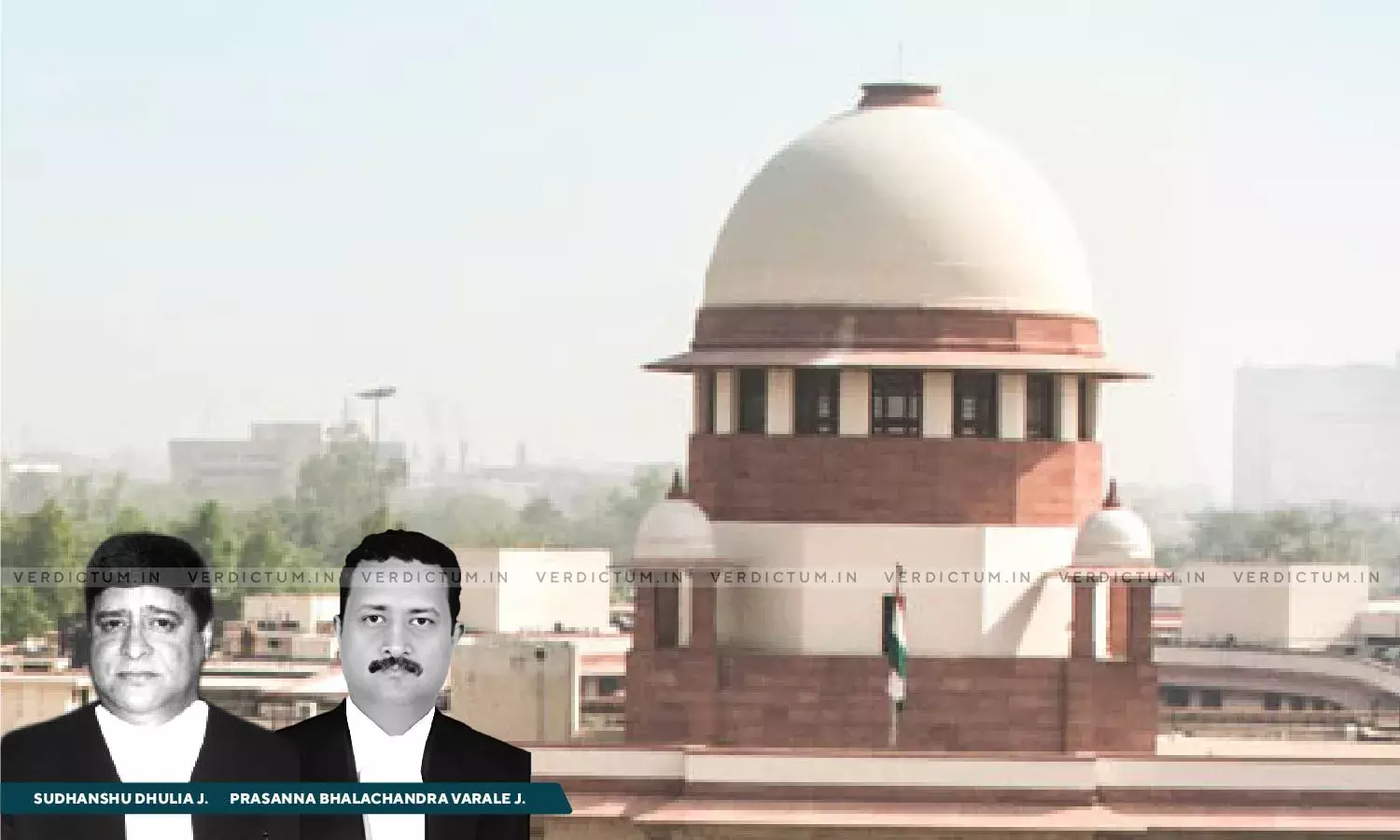Doctrine Of Lis Pendens Takes Effect From Date Of Filing Suit For Injunction: Supreme Court
The Supreme Court observed that the doctrine of lis pendens would take effect from the date subsequent to the filing of a suit for injunction, and not from the date of grant of injunction.
The Bench stated that once the property transactions were deemed illegal due to the doctrine of lis pendens the defence of the parties that they were bonafide purchasers for valuable consideration entitled to protection under Section 41 of the Transfer of Property Act, 1882 (TP Act) were liable to be rejected.
Justice Sudhanshu Dhulia and Justice Prasanna B. Varale observed, “We are going by the settled position that subsequent purchasers will be bound by lis pendens and cannot claim they are bonafide purchasers because they were not aware of the injunction order, looking at the peculiar facts of the present case…Respondents 1-2 have also claimed they have made substantial alterations to the property by investing money and they have also installed a submersible pump. However, this cannot be the basis for the respondents to claim any sort of compensation or stake any sort of claim against the property.”
Sr. Advocate Rameshwar Singh Malik represented the appellant, while Sr. Advocate Narender Hooda appeared for the respondents.
There was an agreement to sell 16 “Kanals” of land, where the appellant had paid a certain earnest amount. However, before the execution of the sale deed, the appellant discovered that the seller, the respondent, was likely to alienate the property. Consequently, the appellant filed a suit for permanent injunction, obtaining a temporary injunction in his favour. Despite the injunction, the seller proceeded to execute a release deed in favour of his son, who subsequently sold the property to other parties
The Trial Court upheld the validity of the sale agreement. However, the Punjab and Haryana High Court overturned the judgment.
The Supreme Court remarked, “The object underlying the doctrine of lis pendens is for maintaining status quo that cannot be affected by an act of any party in a pending litigation. The objective is also to prevent multiple proceedings by parties in different forums. The principle is based on equity and good conscience.”
Since there was an order of temporary injunction operating when the property transactions were made, the Court clarified that the alienation made by one party cannot operate to the disadvantage of another party. Since the parties to these proceedings were bound by the doctrine of lis pendens the protection of bonafide purchasers for valuable consideration cannot be taken as a defence.
Consequently, the Court called the sale deed thus executed “without any legal sanctity” and directed the respondent to accept the balance sale consideration from the appellant.
Accordingly, the Supreme Court allowed the appeal.
Cause Title: Chander Bhan (D) v. Mukhtiar Singh & Ors. (Neutral Citation: 2024 INSC 377)
Appearance:
Appellant: Sr. Advocate Rameshwar Singh Malik; AOR Satish Kumar; Advocates Jitesh Malik, Abhay Singh, Leelawati Suman and B C Bhatt
Respondents: Sr. Advocate Narender Hooda; AOR Surender Singh Hooda; Advocates Rahul Rathore, Shaurya Lamba, and Sukhmani Bajwa




